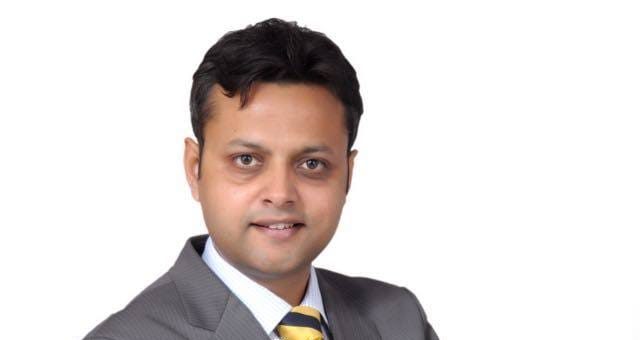Prashant Mishra, Managing Director- India and South Asia, BMJ (British Medical Journal) provideds an insight into the burden of CKDs and the toll it takes on the lives of people suffering from it
Prashant Mishra, Managing Director- India and South Asia, BMJ (British Medical Journal) provideds an insight into how CKD afflicts millions of Indians, significantly elevating the risk of death CKD is a condition with important long-term health impact, which is often unrecognised until it advances and leads to kidney failure. Often called a silent condition, individuals with CKD are at an 8-10-fold increased risk of cardiovascular mortality, compared to those without kidney dysfunction. Treatment and management of CKDs is a long process comprising of lengthy hospital admissions – leading to mental, physical and economical strain on the patients and their caregivers.
CKD currently afflicts millions of Indians and significantly elevates the risk of death, cardiovascular disease, end-stage renal disease (ESRD), and other complications.
Many initiatives by the government – such as the Pradhan Mantri National Dialysis Programme, rolled out in 2016, provides free dialysis to kidney patients in district hospitals. Under the Pradhan Mantri Jan Arogya Yojana (PMJAY), dialysis has emerged as the most claimed package under the scheme, highlighting the burden of kidney disease in the country.
With an increase in non-communicable diseases such as diabetes, it has been cited that cases of end-stage kidney diseases (patients needing a transplant or on dialysis) have gone up by 25 per cent, as compared to the last five years. There are also observations of cases of end-stage kidney diseases being on a rise amongst the population cohort of 25-40 years of age.
According to the Indian Society of Nephrology (ISN), at least 1.5 lakh new patients with kidney diseases have been detected in India in 2018, this number stood at one lakh five years ago. Out of this 1.5 lakh, around 20 per cent patients seek dialysis and 2.5 per cent can afford a transplant.
The problem
India has a nephrology infrastructure of around 1200 nephrologists, 1500 haemodialysis units with 10000 dialysis stations, 230 renal transplant centres; 80 per cent of which are in the private set-up.
Out of the 1200 nephrologists, their density in north, south, west, east and central parts of India is 35.5 per cent, 30 per cent, 23 per cent, 9 per cent and 2.5 per cent, respectively. Certain parts of India do not have access to a specialist and by the time they do, the disease has already progressed to an advanced stage.
A vast proportion of kidney failure patients in the developing world, including India, die without receiving adequate treatment for renal diseases. Identification of CKD in early stages helps to delay the progression of the disease which in turn may reduce the mortality rate associated with CKD.
Late diagnosis of renal failure leads to complications. Early detection and referral are important for timely treatment of CKD. More than 65 per cent of patients of chronic kidney disease (CKD) present as end-stage renal disease (ESRD) to a nephrologist in India, requiring emergency hemodialysis. The problem of late diagnosis and referral to a nephrologist can only be solved when family physicians are also actively involved in management of CKD.
Given the rising burden of CKD, and the shortfall in the number of nephrologists, screening and early evaluation to diagnose and manage CKD are extremely important.
References:
1. World Kidney Day: Hypertension and Diabetes, two major causes of Kidney diseases, https://www.indiatoday.in/education-today/gk-current-affairs/story/world-kidney-day-hypertension-and-diabetes-two-major-causes-of-kidney-diseases-1477841-2019-03-14
2. This World Kidney Day, Make Kidney Health Accessible For Everyone, Everywhere: Here’s How,https://www.ndtv.com/health/this-world-kidney-day-make-kidney-health-accessible-for-everyone-everywhere-heres-how-2006511
3. Abantika Ghosh, Under PMJAY, most claims for dialysis (June 30, 2019) https://indianexpress.com/article/india/pradhan-mantri-jan-arogya-yojana-claims-for-dialysis-kidney-disease-health-scheme-5807064/
4. Nozia Sayyed , March 2019, World Kidney Day: Pune doctors cite a 15 per cent rise in end-stage kidney diseases in 25-40 age group, Hindustan Times, https://www.hindustantimes.com/pune-news/world-kidney-day-pune-doctors-cite-a-15-per-cent-rise-in-end-stage-kidney-diseases-in-25-40-age-group/story-VqL2GljP2mpItxzjw1qiPO.html
5. SK Agarwal, Chronic Kidney Disease in India – Magnitude and Issues Involved, http://www.indus.org/healthcare/Secientific%20Sessions/Dr.%20Sanjay%20K.%20Agarwal%20-%20Chronic%20Kidney%20Disease%20in%20India%20-%20Magnitude%20and%20Issues%20Involved.pdf
6. Bhowmik and Tiwari, Challenges of Hemodialysis in India, Journal of International Medical Sciences Academy,http://medind.nic.in/jav/t12/i2/javt12i2p99.pdf




you are sharing the best blog regarding kidney diseases, its very informative. follow meddco for affordable treatments
you are sharing the best blog regarding kidney diseases, thanks for sharing. follow meddco for affordable health treatments.
Very informative and detail data shared by Mr. Mishra. It is useful for many Indians who are unaware. I, myself, a CKD patient for 10 years. Thanks god for the early diagnosis. Recently transplant done. I started a blog on CKD based on my experience which may be useful for new patients. Please check out myckdstory.com.